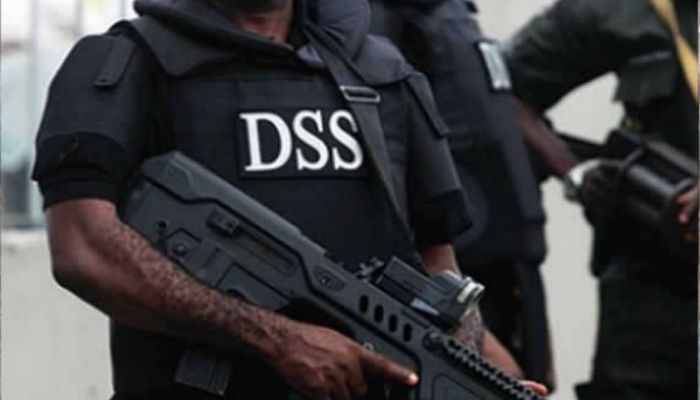Northwest DSS directors meet in Kaduna to review security strategies
…intelligence-led collaboration key to defeating regional threats, says Uba Sani
Directors of the Department of State Services (DSS) from the North-West states on Thursday converged in Kaduna to review security threats and map out new strategies to enhance collaboration against banditry, terrorism, and other emerging challenges in the region.
The conference, which also included representatives from the Federal Capital Territory (FCT), as well as Niger and Plateau States, served as a platform to harmonise intelligence operations and strengthen joint response mechanisms across state boundaries.
Governor Uba Sani of Kaduna State, represented at the opening of the conference by Sule Shuaibu, commissioner for Internal Security and Home Affairs, said intelligence-led collaboration remains the most effective tool for neutralising security threats in the North-West and beyond.
He described the DSS as “the invisible backbone of Nigeria’s internal stability,” adding that the agency has played a vital role in safeguarding democracy and pre-empting threats across the federation. “This conference offers an opportunity for reflection, coordination, and strategic renewal,” he said.
According to the Governor, Kaduna has consistently prioritised intelligence-driven approaches, partnering closely with the DSS and other security agencies to detect and disrupt threats ranging from violent extremism and sabotage to misinformation.
He stressed that modern security management requires more than traditional intelligence gathering, calling for greater investment in analytical capacity, inter-agency trust, and technology-driven intelligence systems.
Governor Sani also urged security leaders to embrace non-kinetic methods of peacebuilding, including community engagement, preventive diplomacy, and counter-narrative strategies. “Peace must be pursued through justice, development, and inclusion,” he added.
The Emir of Zazzau, Ambassador Ahmed Nuhu Bamalli, commended the DSS for sustaining close cooperation with traditional institutions in tackling community-level disputes and security threats.
He disclosed that through alternative dispute resolution mechanisms facilitated with DSS support, the Zazzau Emirate had successfully decongested its courts by over 2,000 cases in two years.
The monarch also lauded the agency’s vetting of district and village heads, saying the process has helped identify and weed out unfit traditional officials. “It’s better to get rid of them from the beginning than allow them to exploit their people,” he said.
The General Officer Commanding, 1 Division Nigerian Army, Mohammed Wase (Major General), who was represented at the event by the 1 Division Garrison Commander, Mohammed Kana, said the Army had substantially defeated the bandits and terrorists in the region due to consistent actionable intelligence from the DSS.
Earlier in his welcome address, Hakeem Abiola, Kaduna State Director of the DSS, said the zonal meeting was convened to review operational challenges and improve synergy among security formations across the North-West zone.
Read also: DSS dismisses 115 officers, warns public against fraudulent impostors
Abiola said the DSS has successfully implemented several kinetic and non-kinetic operations under the leadership of Oluwatosin Adeola Ajayi, DSS Director-General, including community-based peace initiatives that “win the hearts and minds” of citizens.
He highlighted the service’s collaboration with traditional rulers, religious leaders, and civil society as central to sustaining peace in Kaduna. “Through regular engagements with JNI, CAN, and community leaders, we’ve been able to resolve sensitive disputes before they escalate,” he said.
The DSS Director also credited the Kaduna Peace Model; a community-led framework institutionalised by the state government, with reducing kidnapping and banditry along the Kaduna–Abuja, Kaduna–Kachia, and Birnin Gwari highways.
He revealed that the service, in collaboration with other agencies, had intercepted arms shipments, rescued kidnap victims, and foiled terror plots across the region in the last year, many of them carried out discreetly.
Abiola concluded by calling for the creation of a regional security forum involving security chiefs, traditional rulers, and political leaders to confront cross-border crimes and terrorism, stressing that “as threats evolve, our capacity and tools must evolve too.”

